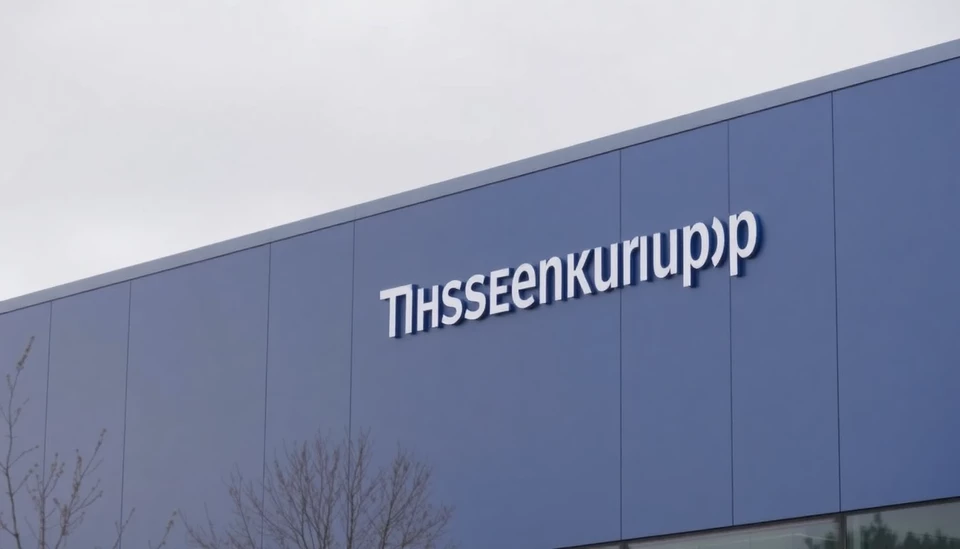
Thyssenkrupp AG, the German industrial giant, is currently navigating a turbulent transition year, with anticipations of encountering negative cash flow as it restructures its operations. The company has been undergoing significant changes in its business model to adapt to a rapidly evolving market, but these adjustments are taking a toll on its financial status.
During a recent press briefing, Thyssenkrupp's management revealed that they expect to report a cash outflow this fiscal year, primarily attributed to the costs associated with restructuring and investments aimed at future growth. The company, which has been divesting non-core assets and streamlining operations, faces the reality of immediate financial strain as it aligns itself with new strategic goals.
This restructuring process comes in the wake of prolonged challenges Thyssenkrupp has faced, including declining sales and a competitive market environment that has pressured its margins. The management emphasized that while this year will be tough, the long-term strategy is designed to position the company for sustainable profitability and robust future growth.
Taking steps to revitalize its portfolio, Thyssenkrupp has initiated the sale of underperforming divisions, a move intended to free up resources that can be reinvested in more promising sectors. However, analysts have noted that the immediate aftermath of such divestments often leads to cash flow issues, which Thyssenkrupp is now experiencing. The executives underscored that these measures are essential to enhance operational efficiency and focus on core competencies, ultimately aiming to strengthen the company’s financial health in the years to come.
Moreover, Thyssenkrupp plans to continue investing heavily in technology and innovation, areas crucial for retaining competitiveness. The management is optimistic that investments in automation and digital transformation will pave the way for improved operational efficiency and product offerings that meet evolving customer demands.
Despite the challenges ahead, the company remains committed to its long-term vision. Thyssenkrupp's leadership has reassured stakeholders that the present cash flow issues are a temporary setback in the grand strategy to create a leaner, more agile enterprise prepared for the market's demands. As the firm embarks on this pivotal journey, investor confidence will be key in navigating the uncertainties of the current landscape.
With the transition firmly underway, Thyssenkrupp's ability to manage its cash flow and maintain investor trust will be critical factors in determining its success in regaining market strength. The company aims to emerge from this difficult period as a more resilient entity capable of thriving amidst the challenges of a dynamic global economy.
As the situation unfolds, stakeholders, analysts, and industry observers will be closely monitoring Thyssenkrupp's next moves and financial results, hoping to gauge the effectiveness of its strategies in turning a tide of negative cash flow into a wave of growth.
#Thyssenkrupp #Finance #CashFlow #Restructuring #Investments #MarketStrategy #IndustrialNews #GermanEconomy
Author: Victoria Adams

